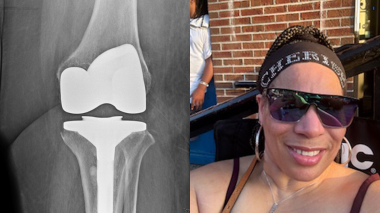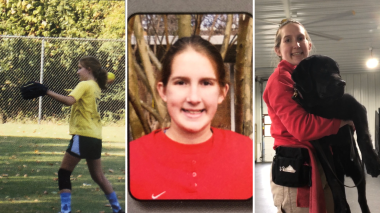Some experts say athletes who neglect nutrition might as well not even train. Others put it more mildly and say nutrition and peak performance on race-day go hand-in-hand.
Alicia Fogarty, MS, RD, CSSD, LDN, is a registered dietitian/nutritionist and a certified specialist in sports dietetics with Atrium Health's Musculoskeletal Institute. She has focused on wellness and sports nutrition with Atrium Health's Muscoloskeletal Institute over the last 11 years but has two decades of experience. Here's what she has to say about this important issue.
Feed your workout
Proper nutrition enhances your training and should be part of your plan from the start, says Fogarty. Regardless of experience, everyone who exercises, or plans to compete in events, should have a nutrition plan for fueling, whether it’s a 5K, mud run or full marathon. “If you are serious enough to train to compete in a race event, you need to make nutrition part of your training regimen,” she says. “Eating and fueling properly helps you train better and achieve better results. Having a plan, and practicing it, is as important to training as the training itself.”
Eat well, perform better
While training, be sure to avoid under-eating or under-fueling, says Fogarty. Sometimes, a goal of weight loss leads to inadvertent training missteps, so when you exercise, it’s better to fuel yourself properly around your exercise session rather than “diet,” as this could lead to fatigue, performance issues and injuries. In general, the longer the event, the more calories and carbohydrates your body will need. Your plan should be based on your gender, height, weight, age and exercise habits and goals. Work with a registered dietitian to create a plan that’s best for you.
Chew on this
Fogarty offers this go-to nutrition advice for exercise:
- Eat right, even before you start to train. The better the fuel you put in, the better the performance you will put out.
- Everyone is different. Experiment with foods and fluids during training to see what works best for you.
- For training at moderate to high intensity, you should have a meal or snack within 2 to 4 hours before exercising that contains carbohydrates and protein and an easy to digest carbohydrate snack within an hour of exercise.
- Hydration, hydration, hydration. Losing just two percent of your body weight from fluid loss can negatively impact training and performance.
- Here are some basic hydration guidelines for exercise: Drink 16 to 22 ounces two to four hours before a race; about 8 ounces 15 minutes before a race, and drink two to three large gulps of fluid every 15 - 20 minutes during exercise. After your workout rehydrate with 16 to 24 ounces of fluid for every pound lost. To monitor if you are hydrated properly, your morning urine should be lemonade color.
- Drink water if you exercise less than 60 minutes; grab a sports drink if you exercise for an hour or more.
- For moderate to high intensity exercise you should have a carbohydrate and protein snack within an hour of completing your exercise and again two hours post exercise. Skipping this step can greatly diminish your ability to exercise at a higher level the next day.
To determine basic calorie needs for exercise, visit ChooseMyPlate.gov.



